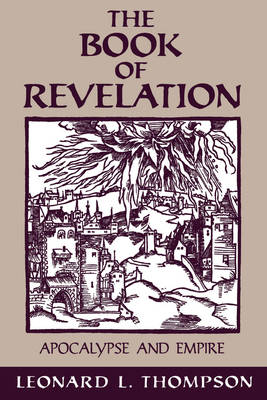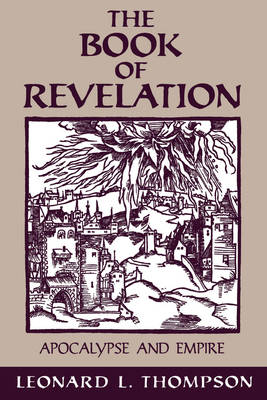
- Afhalen na 1 uur in een winkel met voorraad
- Gratis thuislevering in België vanaf € 30
- Ruim aanbod met 7 miljoen producten
- Afhalen na 1 uur in een winkel met voorraad
- Gratis thuislevering in België vanaf € 30
- Ruim aanbod met 7 miljoen producten
Zoeken
Omschrijving
About seventy years after the death of Jesus, John of Patmos sent visionary messages to Christians in seven cities of western Asia Minor. These messages would eventually become part of the New Testament canon, as The Book of Revelation. What was John's message? What was its literary form? Did he write to a persecuted minority or to Christians enjoying the social and material benefits of the Roman Empire? In search of answers to these penetrating questions, Thompson critically examines the language, literature, history, and social setting of the Book of the Apocalypse. Following a discussion of the importance of the genre apocalypse, he closely analyzes the form and structure of the Revelation, its narrative and metaphoric unity, the world created through John's visions, and the social conditions of the empire in which John wrote. He offers an unprecedented interpretation of the role of boundaries in Revelation, a reassessment of the reign of the Emperor Domitian, and a view of tribulation that integrates the literary vision of Revelation with the reality of the lives of ordinary people in a Roman province. Throughout his study, Thompson argues that the language of Revelation joins the ordinary to the extra-ordinary, earth to heaven, and local conditions to supra-human processes.
Specificaties
Betrokkenen
- Auteur(s):
- Uitgeverij:
Inhoud
- Aantal bladzijden:
- 288
- Taal:
- Engels
- Reeks:
Eigenschappen
- Productcode (EAN):
- 9780195115802
- Verschijningsdatum:
- 13/02/1997
- Uitvoering:
- Paperback
- Formaat:
- Trade paperback (VS)
- Afmetingen:
- 155 mm x 236 mm
- Gewicht:
- 449 g

Alleen bij Standaard Boekhandel
+ 356 punten op je klantenkaart van Standaard Boekhandel
Beoordelingen
We publiceren alleen reviews die voldoen aan de voorwaarden voor reviews. Bekijk onze voorwaarden voor reviews.







